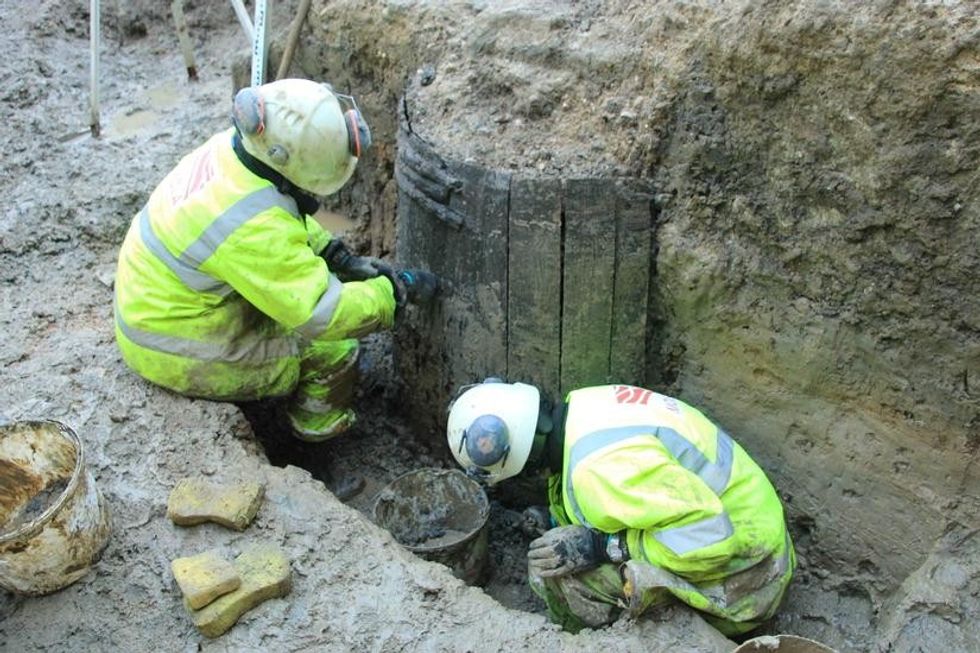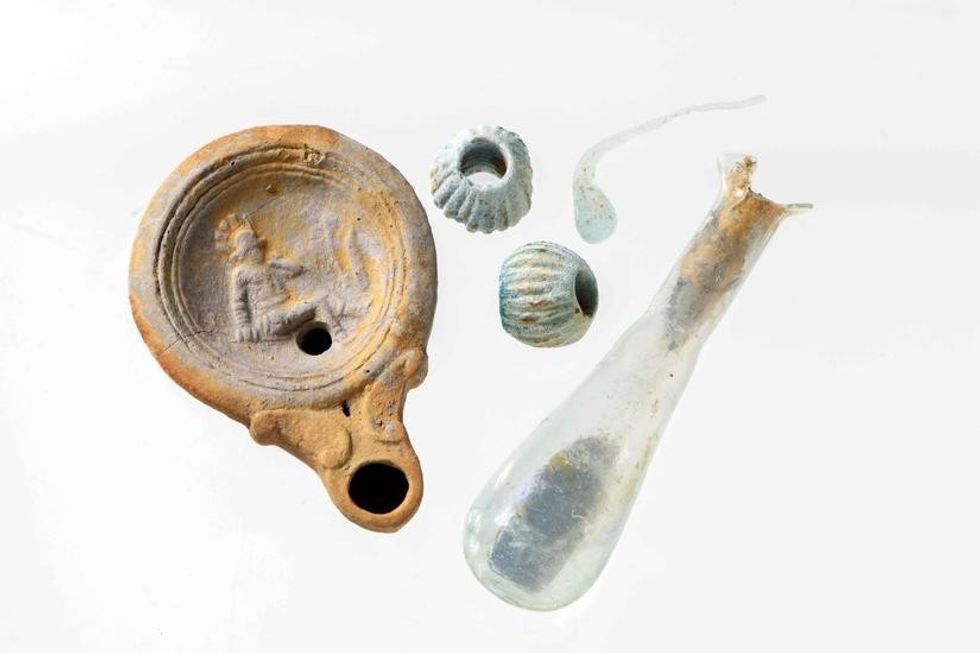A Roman 'flat-packed' funeral bed has been unearthed by archaeologists in Britain for the first time
MOLA
Experts have likened the discovery to 'flat-packed furniture' which would have been used to carry the deceased to the grave
Don't Miss
Most Read
Trending on GB News
A Roman "flat-packed" funeral bed has been unearthed by archaeologists in Britain for the first time.
The 2000-year-old burial site was discovered underneath London’s streets and contains some of the earliest Roman artefacts ever found in the UK.
Experts have likened the discovery to "flat-packed furniture" which would have been used to carry the deceased to the grave.
The oak bed, or "bier", was buried with the dead for them to use in the next life.

The 2000-year-old burial site was discovered underneath London’s streets
MOLA
The artefact was preserved by mud in the former River Fleet which runs beneath the streets of central London.
Five coffins were also found at the site near Holborn Viaduct.
Heather Knight, the project officer with Museum of London Archaeology, which has worked on the site, said: "We know the Romans buried their dead alongside roads, outside of urban centres.
"So, it was no great surprise to discover burials at this site, which during the Roman period would have been located 170m west of the city walls and next to the major Roman road of Watling Street.
LATEST DEVELOPMENTS:
"However, the levels of preservation we’ve encountered – and particularly uncovering such a vast array of wooden finds – has really blown us away."
Cremation was the most popular early Roman funerary practice and burials.
Between 55 and 54 BC, Julius Caesar tried to invade Britain, however it was the emperor Claudius who carried out a successful conquest in 43 AD.
The burial site appears to show that funerary practices were quickly planted in the new province.

Other items found include skeletal remains and grave goods including beads, a glass vial, and an ornate glass lamp
MOLA
A procession would form behind the bier with the deceased’s family, mourners, musicians and sometimes actors playing the parts of the ancestors following the body to the graveside.
It is the first complete object of its kind ever to be found in Britain.
Other items found include skeletal remains and grave goods including beads, a glass vial, and an ornate glass lamp.








